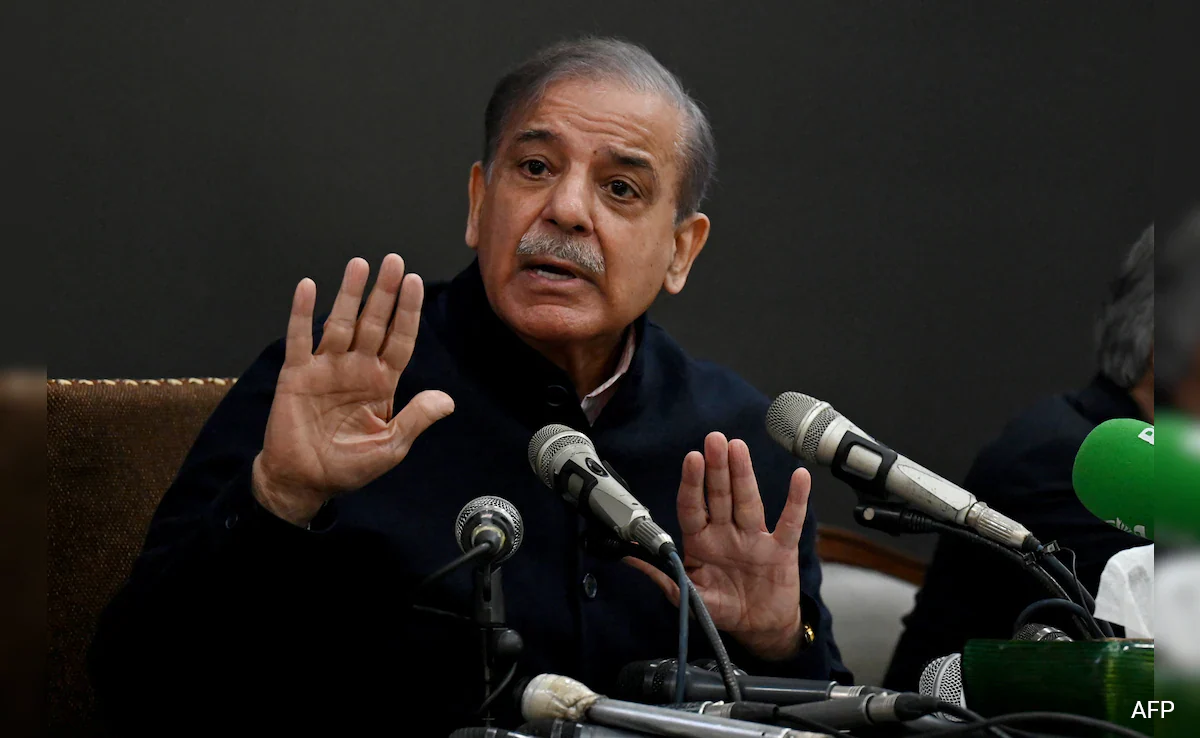


From the everchanging canvas of global affairs, picking up only a few developments every week is not easy. There are events, incidents, talks, exercises and much more! But the developments that impact global politics by and large indeed need to get featured. This week also remained happening considering such affairs. On one hand, Shehbaz took oath as the new Prime Minister of Pakistan while on the other hand, Nikki Haley’s attempt to challenge her Republican frontrunner Donald Trump came to an end this week, when she stepped back, ensuring that Trump will be the party’s candidate in the election rematch with Democratic President Joe Biden.
The newly formed parliament of Pakistan has chosen Shehbaz Sharif as the Prime Minister for a second term this week, after experiencing delays in forming a coalition government following uncertain national elections. He defeated Omar Ayub, who was supported by imprisoned former Prime Minister Imran Khan and secured 92 votes. Sharif is resuming his previous role that he held until August 2023 when the parliament was dissolved before the elections and a caretaker government assumed control. None of the parties won adequate seats to independently form a government. The announcement sparked strong objections from the Sunni Ittehad Council, a party allied with Khan. The legislators demanded Khan’s release and chanted slogans accusing Sharif of winning power through election manipulation. In a comprehensive address, Sharif covered various topics such as the necessity for economic reforms and international relations but refrained from making any definite policy changes. Sharif is the younger sibling of thrice Prime Minister Nawaz Sharif who led their Pakistan Muslim League-Nawaz (PML-N) party’s election campaign. Although candidates supported by Khan secured the most seats, PML-N and PPP reached an agreement to form a coalition government which led to Shehbaz Sharif being elected as Prime Minister again. Though he is facing criticises at his home turf, he was congratulated by Indian PM and he reciprocated by thanking him back for his congratulatory wishes.
The road ahead still looks tough for the new PM of Pakistan, as apart from facing the criticism from his own people, he also has crucial economic challenges in front of him to resolve at the earliest. His appointment also presents a critical moment for the involvement of Pakistan’s influential military, which has historically been perceived as an unseen force shaping the country’s political landscape and has previously manipulated election outcomes. Observers assert that there is widespread scepticism for Sharif’s administration. His instalment as Prime Minister also prompts inquiries about the sway and function of Pakistan’s formidable military in its political sphere. Furthermore, the nation’s economy has hovered on the edge of collapse for years, with inflation reaching unprecedented levels last year. An IMF bailout has kept the economy stable so far, but this arrangement is scheduled to conclude this month; consequently, it will be imperative for the new government to secure another enduring IMF agreement. Though Sharif has initiated the talks and the process but till he gets the final nod from IMF, Pakistan seems to be on a verge of a complete economic fallout. Though Sharif does not seem to be deviating from ‘we are and will be controlled by our military’ mindset, he needs to understand that no democracy survives if it gets in to the hands of its military. Pakistan is considered as a politically failed, economically collapsed, terrorism-promoting country at the global level and Sharif would need to transform himself, his priorities and his style of working, if he actually desires Pakistan to develop.
The US is also looking forward to its next President. The race for the upcoming presidential elections in the US is on. In the latest developments this week, Nikki Haley’s attempt to challenge her Republican frontrunner Donald Trump came to an end this week, when she stepped back, ensuring that Trump will be the party’s candidate in the election rematch with Democratic President Joe Biden. The former South Carolina governor and UN ambassador withdrew from the race after Super Tuesday, where she was defeated by Trump in 14 of 15 Republican nominating contests. Haley had received support from wealthy donors who were determined to prevent Trump from securing a third consecutive nomination, especially following her strong showings at Republican debates which Trump opted out of attending. Though the opinion polls indicate that both Biden and Trump are not highly favoured by the voters. The upcoming election is likely to further divide a country already marked by strong political differences. Biden has depicted Trump as a threat to democratic values, while Trump continues to assert his unfounded belief in winning the 2020 election. Trump has been facing serious criminal charges while Biden’s health is a key concern for his party as well as his voters. The US is also facing economic challenges and thus the voters would definitely pick up economic agenda as a priority in the upcoming elections in the US.
Be it a leader or a nation, one needs to remember that one is recalled by the world for both, making positive contributions to the world or for malicious activities. Leaders from Pakistan and the US should not forget this!
The author is Professor, School of International Studies, JNU